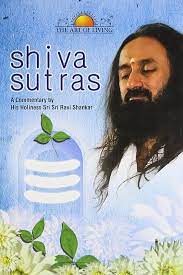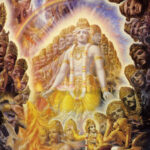Evil has no absolute existence of its own. The Bhagavad Gita says: “The good will never perish; evil can never exist”. Evil doesn’t exist as a separate entity; it is only an appearance. As such, it has only a relative, not absolute, existence. Just as darkness does not have an existence; it is not an entity or a substance but only a lack of light. In the same way, evil is simply lack of goodness. Moreover, according to the Puranas, even the demons finally merge into God: Ravana dies and merges into Rama.
This approach avoids the dilemma about evil and the omnipresence of God. Most religions are of the view that God is Omnipresent, Omnipotent and Omniscient. If God is Omnipresent, then there is no place for evil to exist outside God. If you recognise separate existence for evil, then you have to forgo God’s Omnipresence. If evil is another power that is outside, or challenging God’s power, then God is not Omnipotent. If He is not Omnipresent and Omnipotent, He can’t be Omniscient. God loses his essential qualifications to be God if evil exists as a separate force.
Vedanta holds that evil cannot exist outside God, because God is the material cause of the universe. The example is of the spider weaving its web from its saliva. The spider, the cause, is not different from its web, the effect; just as Brahmn is not different from the universe.
Islam considers that everything is God’s, but does not consider God the material cause of the universe. This basic philosophical difference means that according to Islam, evil can theoretically exist outside God. But if God is not the material cause of the universe, then Vedanta would hold that it is impossible for God to possess the essential qualifications of omnipresence, omnipotence and omniscience.
Vedanta discards a separate existence for evil and considers evil to be only a relative viewpoint. For example, poison is generally considered to be bad; but it is also good in a certain context: many lifesaving drugs are poisons. Likewise, vitamins may be good, even lifesaving; but consumed in excess they can be fatal.
Therefore, good and evil are only relative. All is an appearance, including evil. And the enormous positive energy generated in you can make you go beyond evil and see the truth as advaita, as the one non-dual reality. Sufi saints had to go through great ordeals in making people understand this principle.
Advaita philosophy is close to quantum physics. For both systems, the basic proposition is the same: that the universe is made up of one substance. In this sense, only a scientist can understand the true Vedantic concept of divinity. Vedanta says that God is energy and intelligence, and that the world, which is matter, is nothing but a part of God.
A scientist also knows there is nothing absolutely good or evil in existence. Everything is relative. Whether it is a poisonous metal such as mercury or lead, or a vitamin, the scientist does not assign any predetermined moral value to it. He just knows them as they are; that they are useful in different places for different purposes. Usage alone makes something good or bad. Therefore, Vedanta’s approach to evil, as well as its concept of divinity, is consistent with scientific thought.






